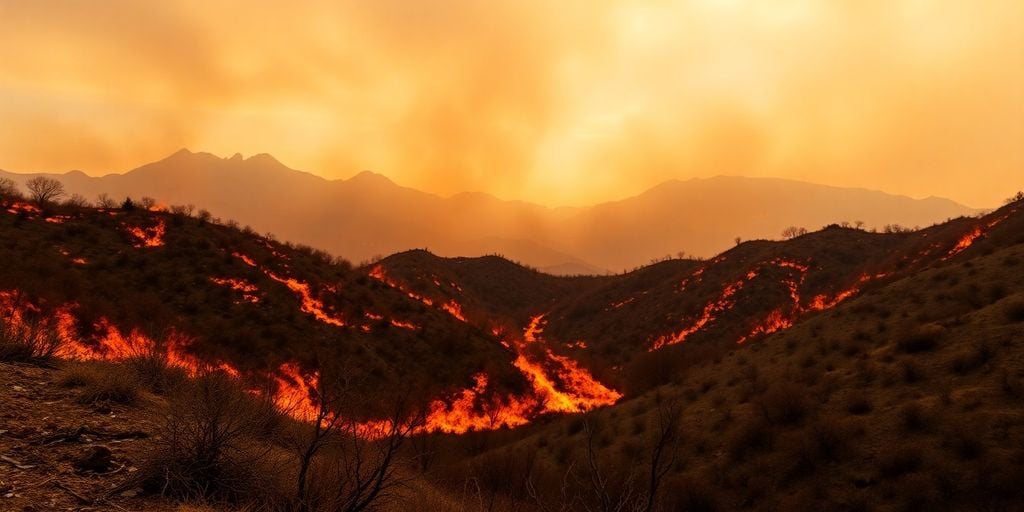A severe heatwave is scorching the Balkans and Greece, triggering devastating wildfires and forcing evacuations. Temperatures are soaring to record-breaking levels, prompting health warnings and disruptions to daily life. The extreme weather conditions are exacerbating the risk of fires across the already dry region.
Heatwave Grips The Balkans
Meteorologists have reported that some areas in the Balkans experienced the hottest day since the 19th century. Temperatures are forecast to reach 40 degrees Celsius (104 degrees Fahrenheit) across the region in the coming week. Health authorities are urging residents to stay hydrated and seek shade, particularly between 11 a.m. and 5 p.m. The prolonged drought conditions also pose a threat to agricultural harvests.
- Record-breaking temperatures are affecting Serbia, Kosovo, North Macedonia, Montenegro, and Croatia.
- People are seeking relief in cooler mountain resorts and lakes.
- Authorities are issuing public health advisories to prevent heat-related illnesses.
Wildfires Rage Amidst Scorching Temperatures
The intense heat and dry conditions have fueled numerous wildfires across the region. In Albania, firefighters, supported by aircraft from Italy and Greece, are battling blazes in the north and near the village of Dukat. Greece has also seen significant fires, with one in the Feneos area requiring the deployment of 185 firefighters, 50 vehicles, 15 planes, and 11 helicopters. Two villages were evacuated as a precautionary measure.
Impact on Tourism and Daily Life
Greece, a popular tourist destination, is experiencing significant disruptions. The iconic Acropolis in Athens has been temporarily closed during the hottest parts of the day to protect visitors and workers. Outdoor labor for couriers, delivery riders, and construction workers has been paused from midday to 5 p.m. in Athens and other regions. Tourists are adapting by seeking air-conditioned spaces and staying indoors during peak heat hours.
Extreme Weather Linked to Climate Change
Experts are increasingly linking the severity and frequency of these extreme weather events to climate change. 2024 was recorded as the warmest year globally, with temperatures exceeding 1.5 degrees Celsius above pre-industrial levels for the first time. Research indicates a significant rise in soil surface temperatures around Athens following past fires that destroyed vegetation, highlighting the cyclical nature of these environmental challenges.
Storms Follow Heatwave
Following the intense heat, some Balkan countries, including Croatia and Serbia, experienced severe hail storms. These storms caused damage to trees, roofs, and infrastructure, including a ferry that broke its moorings and sank vessels in Split, Croatia. While the storms brought some relief from the heat, they also caused localized damage and disruptions.
Sources
- Balkans braced for record-breaking heatwave, Reuters.
- Tourists, workers seek respite as Greece, Balkans hit by heat wave, Daily Sabah.
- Tourists and laborers seek respite as Greece and Balkans gripped by heatwave, eKathimerini.com.
- Storms and fires hit Balkan countries following a period of extreme summer heat, AP News.
- Acropolis shuts as heat wave scorches Greece, Balkans – World, China Daily.






